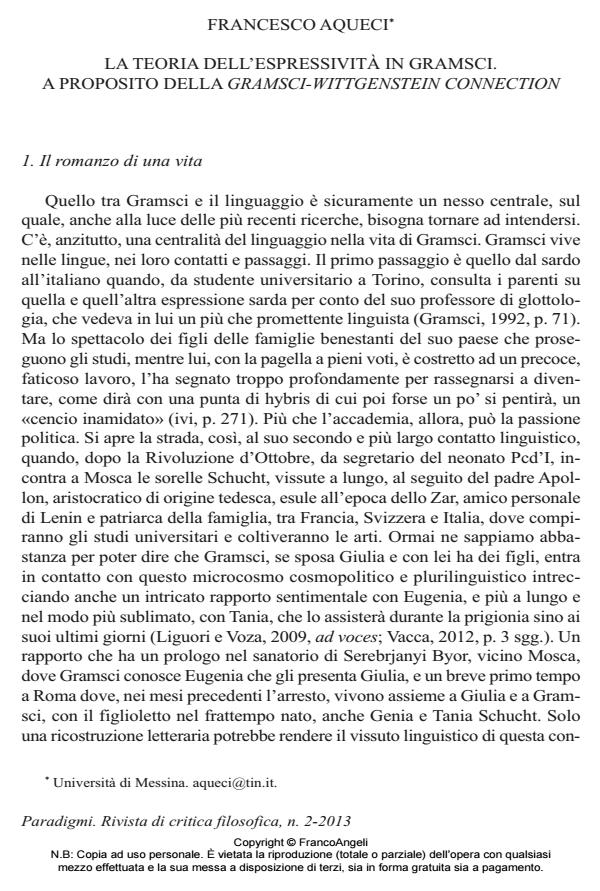Gramsci’s Theory of Expressivity. On the Gramsci-Wittgenstein Connection
Journal title PARADIGMI
Author/s Francesco Aqueci
Publishing Year 2013 Issue 2013/2
Language Italian Pages 18 P. 151-168 File size 121 KB
DOI 10.3280/PARA2013-002012
DOI is like a bar code for intellectual property: to have more infomation
click here
Below, you can see the article first page
If you want to buy this article in PDF format, you can do it, following the instructions to buy download credits

FrancoAngeli is member of Publishers International Linking Association, Inc (PILA), a not-for-profit association which run the CrossRef service enabling links to and from online scholarly content.
Far from identifying hegemony with spontaneous conformity, with prestige or the spirit of belief, we must distinguish between established hegemony and new hegemony, two principles that Gramsci employs in his analysis of the historical situation and its possible transformations. On this distinction is based expressiveness, a notion which presupposes but transcends language and grammar and is the linguistic dimension of the new hegemony, achieved by transforming the pedagogical relations of established hegemony into a new, non-conformist social order.
Keywords: Established hegemony, expressiveness, language, pedagogical relationship, new hegemony, self-imposed norm.
Francesco Aqueci, La teoria dell’espressività in Gramsci in "PARADIGMI" 2/2013, pp 151-168, DOI: 10.3280/PARA2013-002012